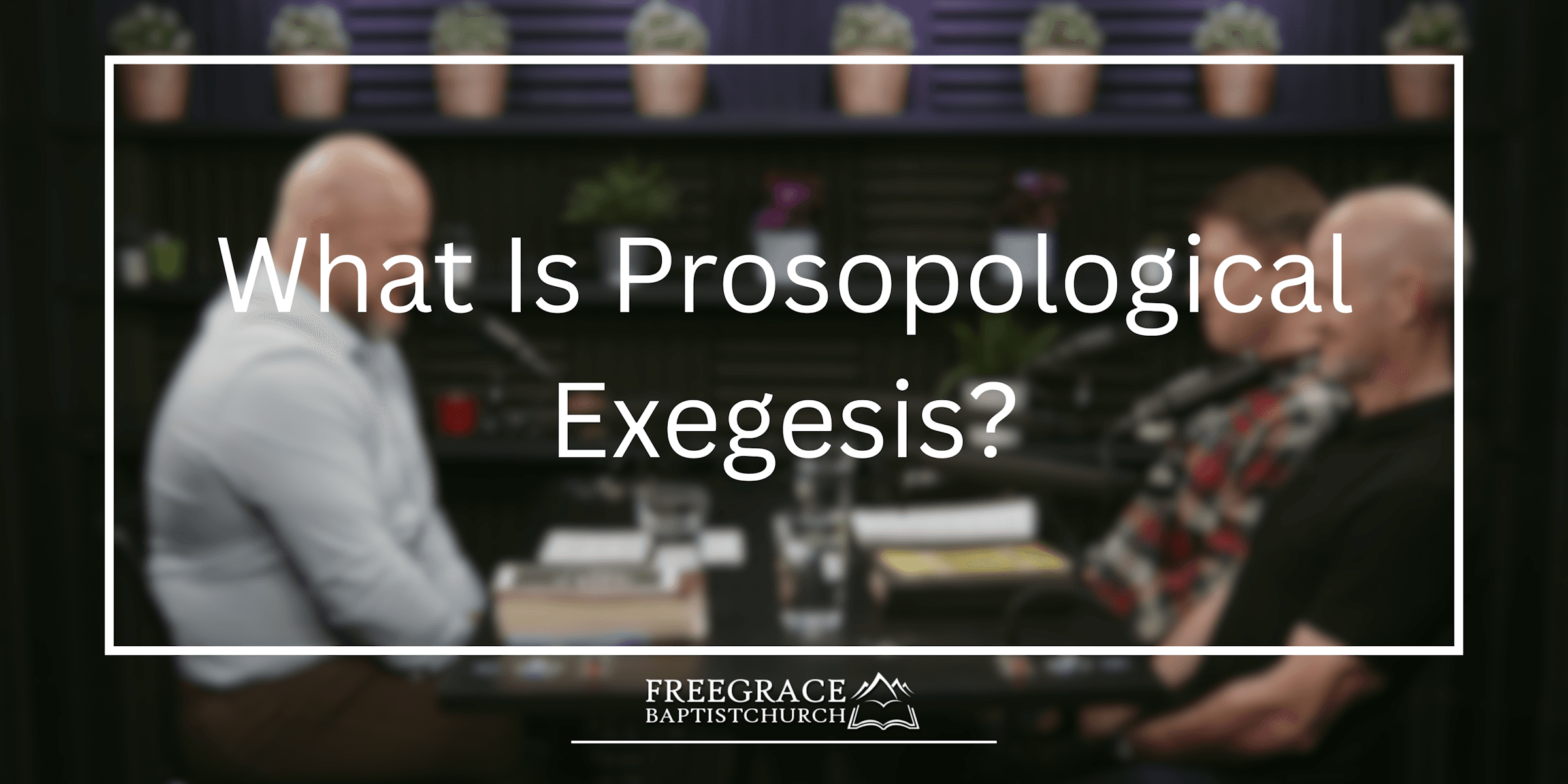Introduction
Have you ever wondered how God the Father and Son speak to each other in the Old Testament? Prosopological exegesis is a big word that reveals the divine dialogue woven throughout Scripture, showing us how passages like Psalm 2 and Psalm 110 capture conversations between the persons of the Trinity. This interpretive approach isn’t a modern invention. It’s how the Bible itself teaches us to read these texts, and it’s been practiced by faithful commentators for centuries.
Got a question on Christianity, Gospel, Scripture, Theology? Submit your own questions here.
Transcript
SPEAKERS: Dr Samuel Renihan, Pastor Cam Porter, Pastor Jim Butler
KEYWORDS: Prosopological exegesis, divine persons, Old Testament texts, Matthew Bates, The Birth of the Trinity, Psalms, dialog in Scripture, John Gill, Matthew Poole, Hebrews, Son and Father, biblical interpretation, divine speakers, Oxford University, theological dialogue.
Pastor Cam Porter 00:07
What is prosopological exegesis? That’s a big word, but there’s a good meaning to it. The expansion on the question is, what is prosopological exegesis? Where does the term come from? And how does it help us understand certain Old Testament texts that involve multiple divine persons?
Pastor Jim Butler 00:27
Yeah, this won’t be a long response. It simply means “person” is where the word originates—person—and it refers to the type of exegesis wherein you see speakers in Scripture speaking to one another. There’s a book by Matthew Bates called The Birth of the Trinity. It gets published by Oxford University, and he deals with this particular subject or topic. As I recall, it’s good. I don’t remember anything that was untoward in there. The title’s a bit interesting—The Birth of the Trinity. You’ve got to kind of make sure that you don’t parse that out to its horrible implications, that there was a time when there wasn’t a Trinity, right?
But basically what he shows in that book is that in the Psalms—I’m looking at Psalm 2, for instance—you’ve got two speakers there. Or Psalm 110: “Yahweh said to my Lord, ‘Sit at my right hand till I make your enemies your footstool.'” Psalm 2, verse 6: “Yet I have set my king on my holy hill of Zion.” That’s the Lord’s response to man and sin—and again, response qualified in terms of not moving from one state to another. And then the other speaker says, “I will declare the decree. The Lord has said to me, ‘You are my son. Today I have begotten you.'”
So we see these persons speaking to one another, having dialogue in the pages of Holy Scripture. Now that Matthew Bates book is a recent book, but I noted that as I was reading through it, that if you read older commentaries, they do this. They don’t call it prosopological exegesis. They don’t say, “By the way, brethren, here’s what I’m going to do now.” But when you read a John Gill, for instance, or a Matthew Poole, or others in our tradition, they do that. They say, “This is the Son speaking to the Father. This is the Father speaking to the Son.” So basically, that’s what it is. It’s to see the dialogue of Scripture from the speakers, the divine persons, one to another.
Pastor Cam Porter 02:25
Terrific. Yeah, great.
Dr Samuel Renihan 02:27
We could add to that that the Scriptures teach us to do this when Hebrews takes Psalm 40: “Behold, I have come to do Your will.” Who is “I” that has come and who is “Your”—whose will, who’s talking here? And the writer to the Hebrews identifies this as the Son and the Father. So it’s not that in any way this was said—it’s not a method of interpretation that was imposed on the Scriptures. It’s not cleverness. It’s how the Bible teaches us to read the Bible.
Pastor Jim Butler 02:59
And I’m pretty confident Bates does appeal a lot to Hebrews because it’s very rampant or prevalent there.
Pastor Cam Porter 03:05
Yeah, excellent. Thank you.
Want more theological Q&A?
Explore the full Ask FGBC archive: https://www.freegrace.ca/ask
Got a question on Christianity, Gospel, Scripture, Theology? Submit your own questions here.







